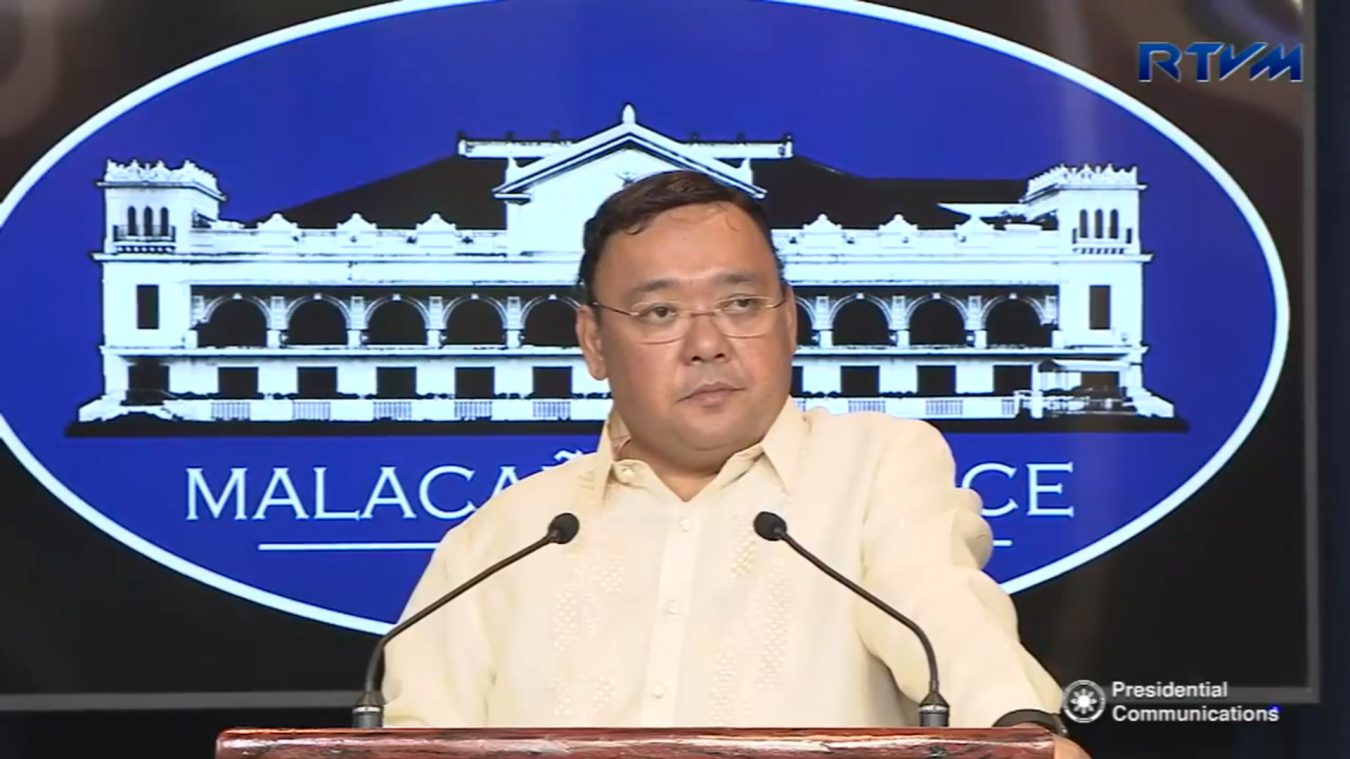
President Rodrigo Roa Duterte welcomed the International Criminal Court’s (ICC) conduct of a preliminary examination into his government’s anti-drug campaign, Malacañang announced on Thursday, February 8.
“The President has said that he… welcomes this preliminary examination because he is sick and tired of being accused of the commission of crimes against humanity,” Presidential Spokesperson Harry Roque Jr. said during an official press briefing.
The Palace announced that the ICC’s Office of the Prosecutor (OTP) would begin its preliminary examination on the alleged acts associated with the government’s anti-illegal drugs campaign.
Secretary Roque clarified that a preliminary examination does not equate to a formal preliminary investigation, but is merely a procedure conducted by the ICC to determine whether the case falls under its jurisdiction.
“We note that this is only a preliminary [examination]. The Office of the Prosecutor is merely exercising her mandate to determine whether there is reasonable basis to proceed with an investigation into a situation pursuant to criteria in the Rome Statute,” he said.
The Spokesperson said the administration saw the development not as a victory for the President’s critics, but as an opportunity to prove that the allegations of crimes against humanity against the President are baseless.
“No one should claim victory because we are only in the stage of preliminary examination… So if they think they have indicted the President, that’s so wrong,” Roque said.
He further stressed that there is no sufficient basis for the ICC to claim jurisdiction over cases involving the Philippines’ anti-drug campaign.
Roque explained that in order to exercise jurisdiction, the ICC has to establish the admissibility of the case, and the principle of complementarity should be implemented. This means that the ICC can only investigate criminal cases if the domestic courts are unable or unwilling to do so.
“Remember, the International Criminal Court is not a court of first instance. All countries to the ICC signed up to it because they wanted the court to be a court of last resort,” he said, stressing that the Philippine government has not shown unwillingness to prosecute its erring officials.
“[I]t is the position of the President that the case is inadmissible,” Roque added.
He also claimed that the acts attributed to the President’s anti-drug campaign could not be regarded as crimes against humanity. Roque said the campaign was a lawful exercise of police power, which aims to deal with the country’s drug trafficking problem.
“As a sovereign State, the Philippines has an inherent responsibility to protect its current and future generations by effectively addressing threats to the safety and wellbeing of its citizens, such as the proliferation of illegal drugs,” the Spokesperson noted.
“Because the war against drugs is a lawful and legitimate police operation, it cannot be characterized as an attack against civilian populations,” he added.
In line with these, Roque described the ICC’s preliminary examination as a “waste of the court’s time and resources” since the criteria to establish jurisdiction were not met. He expressed confidence that the move would not go beyond preliminary examination.
Meanwhile, the Spokesperson also clapped back at the administration’s critics, whom he said were behind the attacks against the war on drugs.
“Obviously, this is intended to embarrass the President. But the President is a lawyer; he knows what the procedures are. They will fail,” he added.
Roque maintained that President Duterte continues to stand by his position to protect the Republic against all threats to our national security. ### PCO-Content

